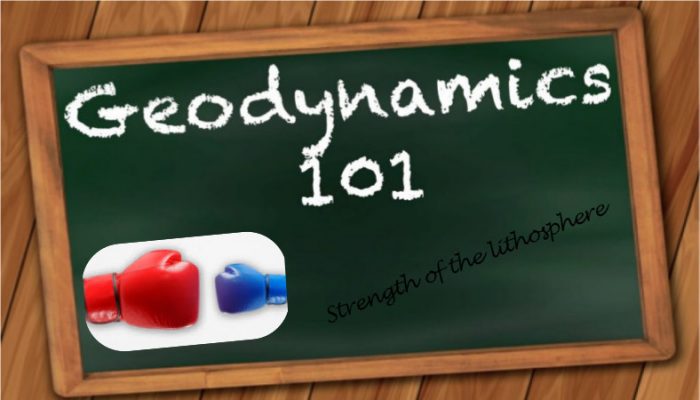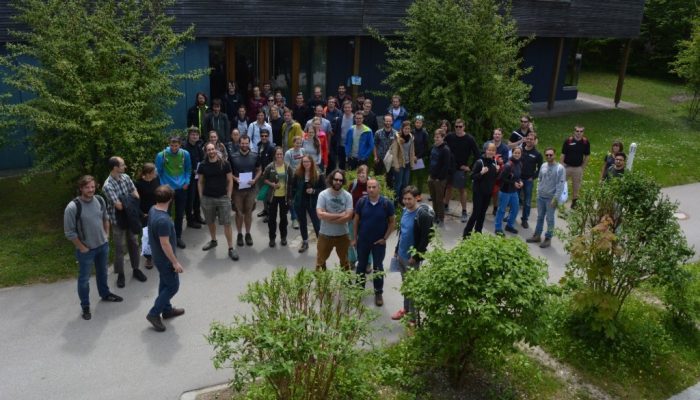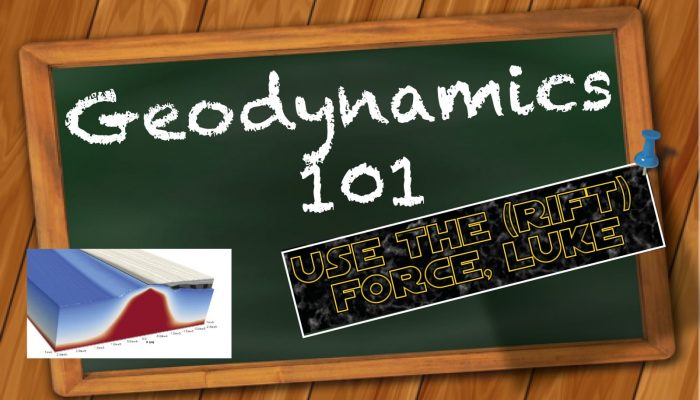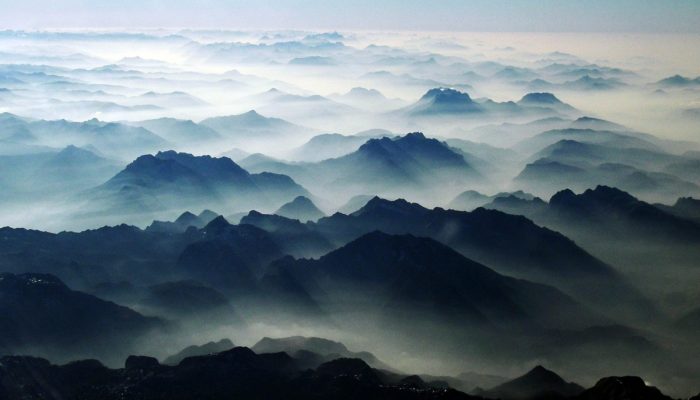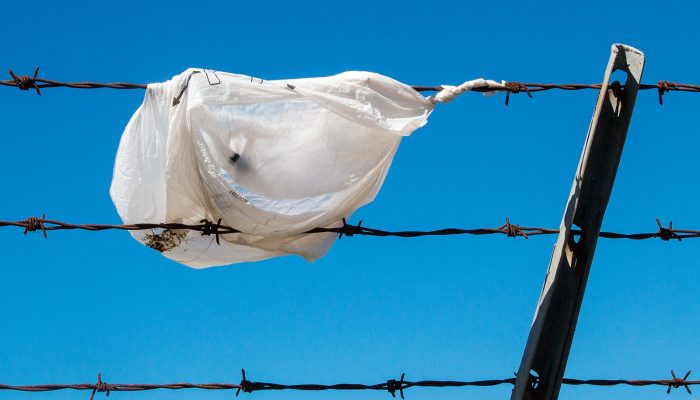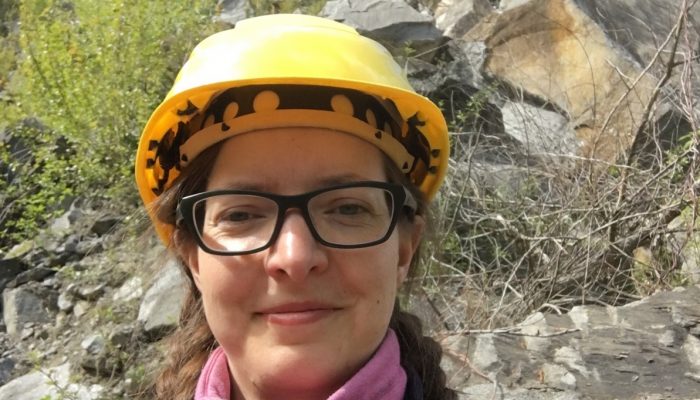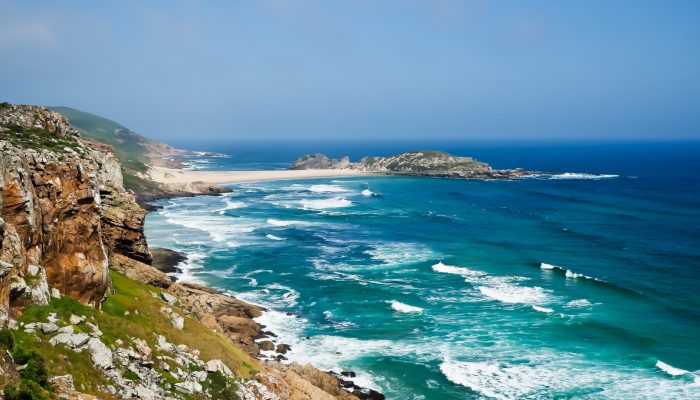The Geodynamics 101 series serves to showcase the diversity of research topics and methods in the geodynamics community in an understandable manner. We welcome all researchers – PhD students to Professors – to introduce their area of expertise in a lighthearted, entertaining manner and touch upon some of the outstanding questions and problems related to their fields. For our latest ‘Geodynamics 10 ...[Read More]
If you didn't find what you was looking for try searching again.
Geomorphology
Young Geomorphologists’ Workshop 2018
Since 2007, the German Young Geomorphologists organize annual workshops in order to support networking amongst early career geomorphology enthusiasts. The meetings provide a platform for open discussions on a wide range of problems that might have emerged within a particular research project. This year, we invite all interested young researchers / students in geomorphology and related fields to jo ...[Read More]
Geodynamics
Finding the forces in continental rifting
The Geodynamics 101 series serves to showcase the diversity of research topics and methods in the geodynamics community in an understandable manner. We welcome all researchers – PhD students to Professors – to introduce their area of expertise in a lighthearted, entertaining manner and touch upon some of the outstanding questions and problems related to their fields. For our latest ‘Geodynam ...[Read More]
Tectonics and Structural Geology
EGU – Realm and Maze? An interview with Susanne Buiter, the current chair of the EGU Programme Committee
Susanne Buiter is senior scientist and team leader at the Solid Earth Geology Team at the Geological Survey of Norway. She is also the chair of the EGU Programme Committee. This means that she leads the coordination of the scientific programme of the annual General Assembly. She assists the Division Presidents and Programme Group chairs when they build the session programme of their divisions, hel ...[Read More]
GeoLog
Geopolicy: Combating plastic pollution – research, engagement and the EU Plastic Strategy
Awareness around the prevalence of plastic pollution, particularly in our oceans, has been growing over the last few years. This is not surprising considering that plastic production has surged from 15 million tonnes in 1964 to 311 million tonnes in 2014 and models have shown that this number will double again within the next 20 years in a business as usual scenario. Furthermore, research conducte ...[Read More]
WaterUnderground
From groundwater flow to groundwater glow: why does groundwater fluoresce in ultraviolet light?
Post by Andy Baker, Professor researching groundwater, caves, past climate, organic carbon and more at the University of New South Wales, in Australia. __________________________________________________ We often come across items that glow after being exposed to ultraviolet light. Fluorescent stickers can be bought for the ceilings of bedrooms; fluorescent hands on analogue clocks and watches; flu ...[Read More]
GeoLog
GeoTalk: Stephanie Zihms, Early Career Scientist Representative
In addition to the usual GeoTalk interviews, where we highlight the work and achievements of early career researchers, this month we’ll also introduce one of the Division early career scientist representatives (ECS). They are responsible for ensuring that the voice of EGU ECS membership is heard. From organising short courses during the General Assembly, through to running and attending regular EC ...[Read More]
GeoLog
Migrating scientists
Scientific research is no doubt enriched by interdisciplinarity and collaborations which cross borders. This, combined with the scarcity of academic positions and the need to further ones horizons by experiencing varied research environments, leads many scientists to relocate (if only on a short term basis) to a country which is not their own. In today’s post, freelance science writer Rober ...[Read More]
GeoLog
Imaggeo on Mondays: Robberg Peninsula – a home of seals
This picture is taken from the Robberg Peninsula, one of the most beautiful places, and definitely one of my favorite places in South Africa. The Peninsula forms the Robberg Nature Reserve and is situated close to the Plettenberg Bay on the picturesque Garden Route. “Rob” in Dutch means “seal”, so the name of the Peninsula is translated as “the seal mountain”. T ...[Read More]
Geomorphology
Do glaciers really do all the work? Perhaps not.
Kerry Leith from the Engineering Geology Department at the ETH Zürich set up a post on their latest publication and the backstory behind it. As they announced on their own website (www.stressdriven.com) review comments ranged from “mediocre or poor” to “[…] provocative, potentially revolutionary (if correct) analysis”. It surely contains interesting thoughts. – ...[Read More]

